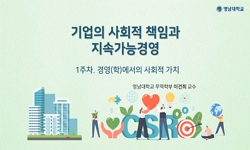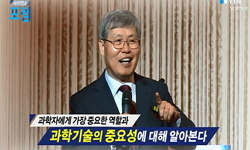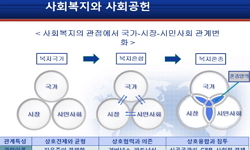본 논문은 CEO의 평판 관리에 대한 인센티브가 기업의 CSR 활동에 어떠한 영향을 주는지 확인하고, 이러한 인센티브에 기인된 CSR 활동이 기업가치 및 단기 실적에 미치는 영향에 대해 분석하...
http://chineseinput.net/에서 pinyin(병음)방식으로 중국어를 변환할 수 있습니다.
변환된 중국어를 복사하여 사용하시면 됩니다.
- 中文 을 입력하시려면 zhongwen을 입력하시고 space를누르시면됩니다.
- 北京 을 입력하시려면 beijing을 입력하시고 space를 누르시면 됩니다.

CEO의 평판 관리에 대한 인센티브와 기업의 사회적 책임에 대한 연구 = CEO`s Incentive to Manage Reputation and Corporate Social Responsibility(CSR): Evidence from Korea
한글로보기https://www.riss.kr/link?id=A100447403
- 저자
- 발행기관
- 학술지명
- 권호사항
-
발행연도
2015
-
작성언어
Korean
-
주제어
최고경영자 ; 평판 ; 사회적 책임 ; 비가족경영자 ; 기업가치 ; CEO ; Reputation ; Corporate Social Responsibility ; Non-family CEO ; Firm Value
-
등재정보
KCI등재
-
자료형태
학술저널
-
수록면
73-108(36쪽)
-
KCI 피인용횟수
6
- 제공처
-
0
상세조회 -
0
다운로드
부가정보
국문 초록 (Abstract)
본 논문은 CEO의 평판 관리에 대한 인센티브가 기업의 CSR 활동에 어떠한 영향을 주는지 확인하고, 이러한 인센티브에 기인된 CSR 활동이 기업가치 및 단기 실적에 미치는 영향에 대해 분석하였다. 기업의 CEO들은 비금전적 효익 혹은 본인의 경력 관리를 위해 평판을 관리할 인센티브가 있으며, 평판 관리를 위한 수단으로 CSR을 이용할 가능성이 존재한다. 따라서 이러한 CEO들은 기업가치보다는 본인의 이익을 위한 용도로 CSR을 이용할 수 있다. 2005년부터 2010년까지 6년간 국내 제조업체들을 대상으로 평판 관리에 대한 CEO의 인센티브와 기업의 CSR 간에 정(+)의 관계가 있음을 확인하였다. 또한 이러한 인센티브는 비가족경영자의 경우 CSR을 추가적으로 증가시키는 효과가 있었으며, CSR을 통해 기업가치가 증가 대신 오히려 CSR 활동이 기업가치에 유의하게 부정적인 영향을 줄 수 있음을 확인하였다. 본 연구는 기업의 사회적 책임 활동이 오히려 CEO의 사적이익을 위한 하나의 수단으로 사용될 수도 있음을 시사한다는 점에서 의미를 갖는다.
다국어 초록 (Multilingual Abstract)
CEO has incentive to manage their reputation from either private benefits of control or career concern. We examine whether CEO``s incentive to manage their reputation can affect CSR activity of the firm they manage. Further, we explore the effect of C...
CEO has incentive to manage their reputation from either private benefits of control or career concern. We examine whether CEO``s incentive to manage their reputation can affect CSR activity of the firm they manage. Further, we explore the effect of CSR, driven by such incentive, on firm value and short-term performance. Using Korean companies from 2005 to 2010, we find significantly positive relation between CEO``s incentive to manage their reputation and CSR activities after controlling governance and firm characteristic variables. Non-family CEO, with greater incentive for reputation management, significantly increases the CSR activities more. Further, we find that CSR does not increase firm value when CSR is made by non-family CEO with greater incentive for reputation management. Even worse, these incentive driven CSR significantly decreases firm value. We interpret the result that CSR activities could be exploited as a means to improve CEO``s reputation, when the CEO has larger incentive to manage their reputation.
참고문헌 (Reference)
1 강형철, "기업집단에서 지배주주 가족에 의한 경영과 기업성과" 한국재무학회 27 (27): 141-176, 2014
2 박헌준, "기업의 환경성과와 재무성과의 관계" 한국경영학회 33 (33): 1461-1487, 2004
3 Jensen.M.C., "Theory of the firm: Managerial behavior, agency costs and ownership structure" 3 : 305-360, 1976
4 Bruyn. S., "The field of Social Investment" Cambridge University Press 1987
5 Landon, S., "The Use of Quality and Reputation Indicators by Consumers: The case of Bordeaux Wine" 20 : 289-323, 1997
6 Friedman. M., "The Social Responsibility of Business Is to Increase Its Profits"
7 Derwall. J., "The Eco-Efficiency Premium Puzzle" 61 : 51-63, 2005
8 Waddock,S.A., "The Corporate Social Performance Financial Performance Link" 18 : 303-319, 1997
9 Pava,M., "The Assosiation Between Corporate Social Responsibility and Financial Performance: The Paradox of Social Cost" 15 : 321-357, 1996
10 Malmendier, U., "Superstar CEOs" 124 : 2009-, 1638
1 강형철, "기업집단에서 지배주주 가족에 의한 경영과 기업성과" 한국재무학회 27 (27): 141-176, 2014
2 박헌준, "기업의 환경성과와 재무성과의 관계" 한국경영학회 33 (33): 1461-1487, 2004
3 Jensen.M.C., "Theory of the firm: Managerial behavior, agency costs and ownership structure" 3 : 305-360, 1976
4 Bruyn. S., "The field of Social Investment" Cambridge University Press 1987
5 Landon, S., "The Use of Quality and Reputation Indicators by Consumers: The case of Bordeaux Wine" 20 : 289-323, 1997
6 Friedman. M., "The Social Responsibility of Business Is to Increase Its Profits"
7 Derwall. J., "The Eco-Efficiency Premium Puzzle" 61 : 51-63, 2005
8 Waddock,S.A., "The Corporate Social Performance Financial Performance Link" 18 : 303-319, 1997
9 Pava,M., "The Assosiation Between Corporate Social Responsibility and Financial Performance: The Paradox of Social Cost" 15 : 321-357, 1996
10 Malmendier, U., "Superstar CEOs" 124 : 2009-, 1638
11 Statman. M., "Socially Responsible Mutual Funds" 56 : 30-39, 2000
12 Faccio. M., "Politically Connected Firms" 96 : 369-386, 2006
13 Villalonga.B., "How do Family Ownership, Management, and Control Affect Firm Value?" 80 : 385-417, 2006
14 Yermack. D., "Flights of fancy: Corporate jets, CEO perquisites, and inferior shareholder returns" 80 : 211-242, 2006
15 Burkart.M, "Family firms" 58 : 2167-2202, 2004
16 Flannery. M. J., "Estimating dynamic panel models in corporate finance" 19 : 1-19, 2013
17 Ullmann. A., "Data in Search of a Theory: A Critical Examination of the Relationship Among Social Performance, Social Disclosure, & Economic Performance" 10 : 450-477, 1985
18 Jones, T. M., "Corporate social responsibility revisited, redefined" 22 : 59-67, 1980
19 Maignan, I., "Corporate citizenship as a marketing instrument-Concepts, evidence, and research directions" 35 : 457-484, 2001
20 Borghesi. R., "Corporate Socially Responsible Investments: CEO Altruism, Reputation, and Shareholder Interests" 2014
21 Barnea. A., "Corporate Social Responsibility as a Conflict between Shareholders" University of Texas at Austin 2006
22 Becchetti, L., "Corporate Social Responsibility and Shareholder’s Value: An Event Study Analysis" Federal Reserve Bank of Atlanta 2007
23 Tsoutsoura, M., "Corporate Social Responsibility and Fianacial Performance" UC Berkely 2004
24 Brown. W., "Corporate Philanthropic Practices, Journal of Corporate Finance" 12 : 855-877, 2006
25 Schwart. R., "Corporate Philanthropic Contributions" 51 : 1201-1225, 1968
26 Jo.H., "Corporate Governance and Firm Value: The Impact of Corporate Cosical Responsibility" 103 : 351-383, 2011
27 천미림, "CSR의 지속성이 CSR과 재무성과의 관계에 미치는 영향" 한국회계정보학회 29 (29): 351-374, 2011
28 Rajagopal. S., "CEO’s outside employment opportunities and the lack of relative performance evaluation in compensation contracts" 61 : 1813-1844, 2006
29 Milbourn, T., "CEO reputationand stock-based compensaton" 68 : 233-262, 2003
30 Francis, J., "CEO reputation and earnings quality" 25 : 109-147, 2008
31 Edmans. A., "A multiplicative model of optimal CEO incentives in market equilibrium" 22 : 4881-4917, 2009
동일학술지(권/호) 다른 논문
-
- 보험연구원
- 김성완 ( Seong Wan Kim )
- 2015
- KCI등재
-
손해보험사의 출재는 과다한가? -RBC 규제에 기초한 분석-
- 보험연구원
- 김헌수 ( Hun Soo Kim )
- 2015
- KCI등재
-
연금재정상황을 고려한 퇴직급여 지급보증가치에 관한 연구
- 보험연구원
- 최경진 ( Kyung Jin Choi )
- 2015
- KCI등재
분석정보
인용정보 인용지수 설명보기
학술지 이력
| 연월일 | 이력구분 | 이력상세 | 등재구분 |
|---|---|---|---|
| 2026 | 평가예정 | 재인증평가 신청대상 (재인증) | |
| 2020-01-01 | 평가 | 등재학술지 유지 (재인증) |  |
| 2017-01-01 | 평가 | 등재학술지 유지 (계속평가) |  |
| 2016-03-30 | 학술지명변경 | 외국어명 : Journal of Insurance Studies -> Journal of Insurance and Finance |  |
| 2013-01-01 | 평가 | 등재 1차 FAIL (등재유지) |  |
| 2010-01-01 | 평가 | 등재학술지 유지 (등재유지) |  |
| 2009-02-10 | 학술지명변경 | 한글명 : 보험개발연구 -> 보험금융연구외국어명 : Korea Insurance Development Institute -> Journal of Insurance Studies |  |
| 2008-06-20 | 학회명변경 | 한글명 : 보험개발원 -> 보험연구원영문명 : Korea Insurance Development Institue -> Korea Insurance Research Institute |  |
| 2008-01-01 | 평가 | 등재학술지 유지 (등재유지) |  |
| 2005-05-18 | 학술지등록 | 한글명 : 보험개발연구외국어명 : Korea Insurance Development Institute |  |
| 2005-01-01 | 평가 | 등재학술지 선정 (등재후보2차) |  |
| 2004-01-01 | 평가 | 등재후보 1차 PASS (등재후보1차) |  |
| 2003-01-01 | 평가 | 등재후보학술지 유지 (등재후보1차) |  |
| 2002-01-01 | 평가 | 등재후보 1차 FAIL (등재후보1차) |  |
| 1999-01-01 | 평가 | 등재후보학술지 선정 (신규평가) |  |
학술지 인용정보
| 기준연도 | WOS-KCI 통합IF(2년) | KCIF(2년) | KCIF(3년) |
|---|---|---|---|
| 2016 | 0.82 | 0.82 | 0.74 |
| KCIF(4년) | KCIF(5년) | 중심성지수(3년) | 즉시성지수 |
| 0.77 | 0.72 | 1.15 | 0 |





 KCI
KCI KISS
KISS






